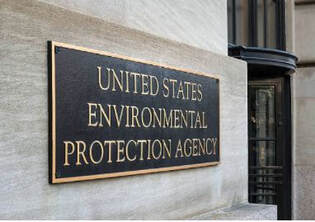 The impacts of COVID-19 on Americans’ health, the economy and our social fabric have been truly stunning. In a short period of time, people’s lives have been upended, millions sent to the unemployment line, and freedom of movement restricted. Those businesses allowed to operate to provide the medical supplies, food, fuel and other essentials for the response and daily sustenance are faced with challenges of supply disruptions, hindrance of movement, worker shortages and increased risk of infection. Recognizing those challenges, the Environmental Protection Agency (EPA) released a memorandum that gives flexibility to companies trying to maintain operations under difficult circumstances. The policy extended deadlines for companies to meet environmental reporting requirements, and flexibility with routine testing and monitoring, if they can demonstrate a coronavirus-related hardship. The memo was a practical response that relaxes some of the red tape of environmental compliance, but not the substance. There are always two aspects to environmental compliance. One is ensuring the environmental standard is met, such as keeping air emissions and water discharges within the allowable health standards. That’s the part of environmental compliance that’s the most important, as it delivers the actual environmental benefit to keep our air and water clean. The other component of environmental compliance is the paperwork. This aspect involves the recordkeeping and reporting to prove to regulators that the standards are being met and the environment is being protected.
EPA is giving companies that can demonstrate a COVID-19 hardship some flexibility. This does not relieve companies of their obligations to meet environmental standards, or penalties if they don’t. EPA specifically says in the memo that failure to meet environmental standards will not be excused. But EPA is willing to work with companies under extenuating circumstances to keep them in compliance or get them back in compliance as quickly as possible in the event of a coronavirus-related incident. One of the main ways EPA’s temporary COVID-19 policy is aimed at focusing on the substance of environmental protection is by providing flexibility on the red tape aspects of compliance. All record keeping and reporting don’t go away, but where there’s a coronavirus staff shortage or supply disruption that prevents a company from meeting all paperwork requirements on the regular schedule, there is a temporary reprieve and more time given to submit reports to EPA. This enables company environmental staff to focus on staying in compliance in the first place, and not paper pushing. Importantly, the memo clearly says that the policy does not relax any environmental standards, just the red tape around it. Because the policy balances the need for environmental compliance with the realities of maintaining industries that are responding to one of the biggest crises facing the country since 9/11, it prioritizes actual environmental protection over red tape. Right on cue, environmental ideologues responded with rage. Refusing to recognize a balance is warranted during these extraordinary times, the knee-jerk response was predictable and unsubstantiated. Gina McCarthy, former EPA Administrator turned environmental lobbyist called it “an open license to pollute” even though it specifically does not relax penalties for an actual failure to meet an environmental standard. Her attitude displays a rigidity that, were she still at the helm of EPA, would keep EPA and company staff focused on the paper pushing rather than practical environmental protection on the ground. That type of rigidity is never good during times of crisis. We’ve seen many examples of the government and private sector working together to address the emergency, from ramping up production of medical supplies to keeping essential services running. We’ve seen how leaders like Governor Andrew Cuomo and President Trump are responding to rapidly changing circumstances and adjusting the response accordingly, even when they don’t get everything right the first time. We’ve seen even Congress come together and pass a virtually unanimous stabilization bill. That type of emergency response is assisted when agencies like EPA show a willingness to cooperate with the very companies who are keeping essential services running. We should be glad that those who insist on red tape rigidity at a time of crisis and emergency response are not running the show. 10/12/2022 03:12:02 am
I appreciate you providing this trustworthy and educational article to everyone. Comments are closed.
|
Archives
June 2024
Categories |


 RSS Feed
RSS Feed